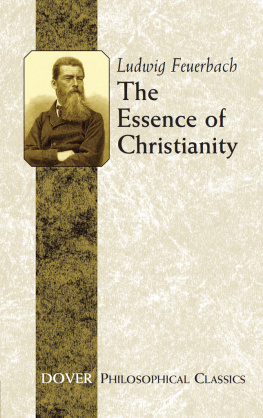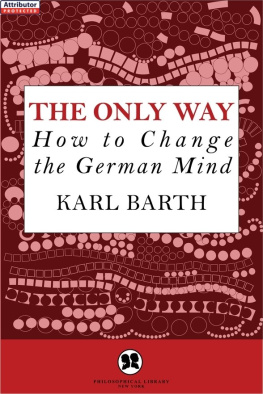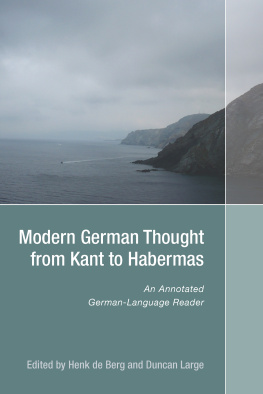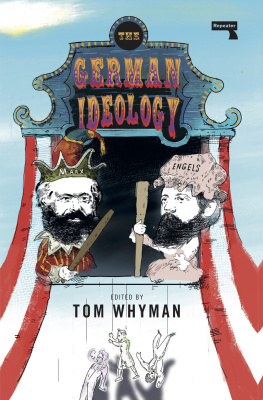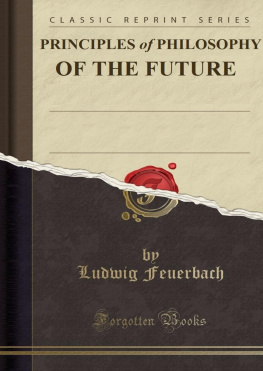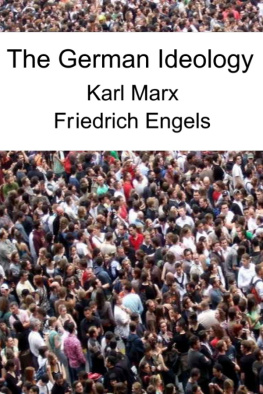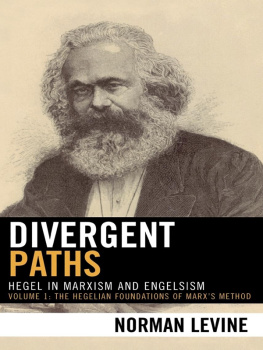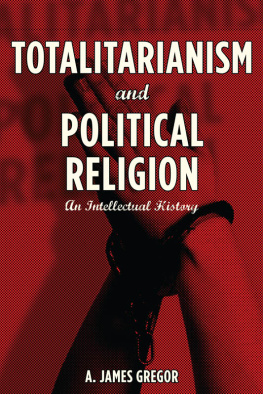The Essence of
Christianity
Ludwig Feuerbach
Translated by
George Eliot
DOVER PUBLICATIONS, INC.
Mineola, New York
DOVER PHILOSOPHICAL CLASSICS
Bibliographical Note
This Dover edition, first published in 2008, is an unabridged republication of the second edition of The Essence of Religion, translated by George Eliot, published by Trbner, London, in 1881. The introductory Note was specially prepared for this edition.
Library of Congress Cataloging-in-Publication Data
Feuerbach, Ludwig, 18041872.
[Wesen des Christenthums. English]
The essence of Christianity / Ludwig Feuerbach; translated by George Eliot. Dover ed.
p. cm. (Dover philosophical classics)
Originally published: The essence of religion. 2nd ed. London: Trbner, 1881.
eISBN-13: 978-0-486-11922-9
1. ReligionPhilosophy. 2. ChristianityControversial literature. I. Title.
B2971.W4E5 2008
230dc22
2007050690
Manufactured in the United States of America
Dover Publications, Inc., 31 East 2nd Street, Mineola, N.Y. 11501
PUBLISHERS NOTE
Consciousness of God is self-consciousness,
knowledge of God is self-knowledge.
Ludwig Feuerbach
GERMAN PHILOSOPHER Ludwig Andreas Feuerbach (18041872) interprets Christian beliefs in The Essence of Christianity, a compelling work on religious philosophy. Originally written in German, this nineteenth-century classic is considered to be one of Feuerbachs greatest achievements.
Ludwig Feuerbach was born in Landshut, Bavaria. He attended the University of Heidelberg in 1823 where Karl Daub, a Hegelian theologian, introduced him to Hegelianism, a philosophy that emphasizes reality in ideas rather than in things, and rationalizes ideas behind phenomena. Feuerbach was immediately attracted to this philosophy and, in 1824, enrolled at the University of Berlin to study under the master himself, G.W.F. Hegel, one of the creators of German Idealism. In 1831, after the death of Hegel, Feuerbach established himself as the leader of the Young Hegelians, a group consisting of students and professors from the University of Berlin. The sole purpose of this group was to criticize the philosophical basis of religion.
In this revolutionary workone of the first books involving projection theories of religionFeuerbachs philosophical ideas on religion are explored. A book filled with controversy, Feuerbach believes that religion stems from ones alienation of oneself and the projection of human qualities onto a fictitious being. Feuerbach states, If therefore my work is negative, irreligious, atheistic, let it be remembered that atheismat least in the sense of this workis the secret of religion itself; that religion itself, not indeed on the surface, but fundamentally, not in intention or according to its own supposition, but in its heart, in its essence, believes in nothing else than the truth and divinity of human nature.
His critique of Hegels idealism was a major influence on Karl Marx and Friedrich Engels. Engels states that The Essence of Christianity exploded the system and broke its spell. According to Marx, Feuerbach is the only one who has a serious, critical attitude to the Hegelian dialectic and who has made genuine discoveries in this field. He is in fact the true conqueror of the old philosophy.
CONTENTS
CHAPTER
CHAPTER
SECTION
PREFACE TO THE SECOND EDITION
THE CLAMOUR excited by the present work has not surprised me, and hence it has not in the least moved me from my position. On the contrary, I have once more, in all calmness, subjected my work to the severest scrutiny, both historical and philosophical; I have, as far as possible, freed it from its defects of form, and enriched it with new developments, illustrations, and historical testimonies,testimonies in the highest degree striking and irrefragable. Now that I have thus verified my analysis by historical proofs, it is to be hoped that readers whose eyes are not sealed will be convinced and will admit, even though reluctantly, that my work contains a faithful, correct translation of the Christian religion out of the Oriental language of imagery into plain speech. And it has no pretension to be anything more than a close translation, or, to speak literally, an empirical or historico-philosophical analysis, a solution of the enigma of the Christian religion. The general propositions which I premise in the Introduction are no priori, excogitated propositions, no products of speculation; they have arisen out of the analysis of religion; they are only, as indeed are all the fundamental ideas of the work, generalisations from the known manifestations of human nature, and in particular of the religious consciousness,facts converted into thoughts, i.e., expressed in general terms, and thus made the property of the understanding. The ideas of my work are only conclusions, consequences, drawn from premises which are not themselves mere ideas, but objective facts either actual or historicalfacts which had not their place in my head simply in virtue of their ponderous existence in folio. I unconditionally repudiate absolute, immaterial, self-sufficing, speculation,that speculation which draws its material from within. I differ toto clo from those philosophers who pluck out their eyes that they may see better; for my thought I require the senses, especially sight; I found my ideas on materials which can be appropriated only through the activity of the senses. I do not generate the object from the thought, but the thought from the object; and I hold that alone to be an object which has an existence beyond ones own brain. I am an idealist only in the region of practical philosophy, that is, I do not regard the limits of the past and present as the limits of humanity, of the future; on the contrary, I firmly believe that many thingsyes, many thingswhich with the short-sighted, pusillanimous practical men of today, pass for flights of imagination, for ideas never to be realised, for mere chimeras, will tomorrow, i.e., in the next century,centuries in individual life are days in the life of humanity,exist in full reality. Briefly, the Idea is to me only faith in the historical future, in the triumph of truth and virtue; it has for me only a political and moral significance; for in the sphere of strictly theoretical philosophy, I attach myself, in direct opposition to the Hegelian philosophy, only to realism, to materialism in the sense above indicated. The maxim hitherto adopted by speculative philosophy: All that is mine I carry with me, the old omnia mea mecum porto, I cannot, alas! appropriate. I have many things outside myself, which I cannot convey either in my pocket or my head, but which nevertheless I look upon as belonging to me, not indeed as a mere mana view not now in questionbut as a philosopher. I am nothing but a natural philosopher in the domain of mind; and the natural philosopher can do nothing without instruments, without material means. In this character I have written the present work, which consequently contains nothing else than the principle of a new philosophy verified practically, i.e., in concreto, in application to a special object, but an object which has a universal significance: namely, to religion, in which this principle is exhibited, developed, and thoroughly carried out. This philosophy is essentially distinguished from the systems hitherto prevalent, in that it corresponds to the real, complete nature of man; but for that very reason it is antagonistic to minds perverted and crippled by a superhuman, i.e., anti-human, anti-natural religion and speculation. It does not, as I have already said elsewhere, regard the
Next page
